6 Reasons EVs Are Still Lagging Behind Internal Combustion
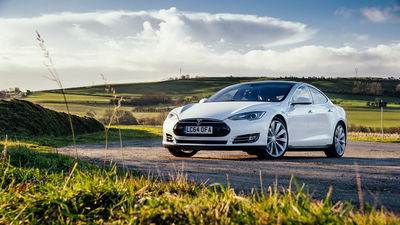
Electric vehicles have been around since the 1800s and yet are only just beginning to catch up with internal combustion, the dominant force established during the 20th century.
A young Scotsman called Robert Anderson invented a non-rechargeable EV back in the early 1830s and electric vehicles held all land speed records up until the 1900s. And yet despite the huge accomplishments by companies like Tesla, BMW and most recently Rimac, the electric car still isn’t quite on-par with the established world of IC. So here are some reasons why the future isn’t quite here yet…
Range
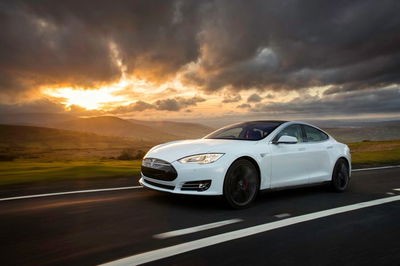
Possibly the largest factor that is weighing down the progression of EVs. With the level of battery power currently being manufactured, an electric vehicle simply cannot match an IC engine when it comes to long-haul journeys. Sure, EVs have got to a point where they are more than capable of everyday city driving, but if you need to drive cross-country to the next city, keeping an eye on that range readout will become a nervous affair.
In the UK (where our motorway speed limit is 70mph) the top of the range EV on sale here – the Tesla Model S P90D – has a range of 267 miles from full charge. That figure is further reduced once you upgrade to the largest 21-inch wheels, and don’t you dare touch the A/C. A diesel saloon these days will happily sit above 50mpg, which when combined with a reasonably large tank can more than double the range of the all-electric vehicle.
Charging time
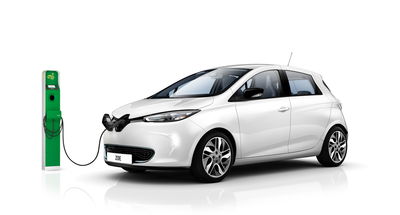
Another near-fatal shot fired from the world of internal combustion. After you’ve travelled twice as far as the EV, you can swiftly fill up your fuel tank in around two minutes at the pump and then get on your way again. Battery charging on the other hand is a massive inconvenience.
Plugged into a normal home charger that uses the mains voltage and current, a top range EV will add around 11 miles of range for each half hour of charging time. This therefore means that for effective and full charging to take place, it’s only really convenient to have the car plugged in overnight.
But on road trips, that is simply not an option, so Tesla provides ‘Superchargers’ at specific petrol stations around the country which will give you back 50 per cent range in ‘just’ 20 minutes of charging. You could say that’s enough time to nip into the services and get a Burger King and a Wispa, but there’s no such thing as a ‘splash and dash’ pitstop in the world of EVs.
Weight

The blistering acceleration that instant-torque motors are capable of is all well and good, but electric vehicles are extremely heavy in comparison to their IC rivals. The Model S sits at 2106kg, the same as many bulky SUVs and much heavier than most super and sports cars. And although in cases like the Rimac Concept One they can obliterate even the most modern of hypercars, the sheer weight of the battery packs make for intrinsically poor handling.
Although companies like Tesla and Rimac try their utmost to place the battery as low as possible to decrease the centre of gravity, EVs in general are renowned for fairly cumbersome dynamics that make their IC equivalents a much more involving and rewarding driving experience.
Lack of manufacturer cohesion
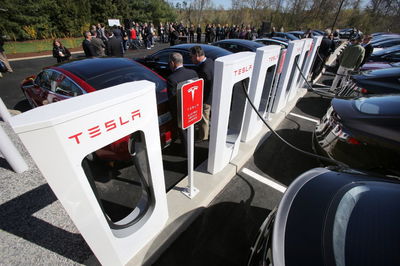
Making a universal battery connection/pack for all EVs would be a huge step forward in convenience and would entice many more customers into seeing them as a viable option. Unfortunately, each manufacturer has stuck to its own way of doing things in this volatile age of secretive technological advancements.
Once electric vehicles become more commonplace in the market, I’d imagine that the largest EV companies will begin to bring their ideas together and form some sort of cohesion so that batteries can be switched from one vehicle to another from a differing brand.
If an IC car’s battery dies, a recovery service can easily arrive and provide a replacement battery to get you on your way again. If you were to have a battery issue in an electric vehicle however, the chances of a recovery service hauling around each different form of battery pack for each different type of EV are extremely unlikely. Along with charging points covering all different types of connections for every EV on the market, the likes of Tesla, BMW and Renault need to quickly level the playing field to add to the attraction of their latest new-age vehicles.
Price

Due to the technology still being relatively new to the car market, it’s safe to say that buying an electric vehicle is a bit of a hit on the wallet from the outset. A Renault Zoe will set you back around £18,000 for the 65kW (88bhp) model, with the Tesla Model X topping out at £116,000.
With the more powerful and convenient Fiesta EcoBoost priced at £2000 less than the Renault and the Model X skirting dangerously close to supercar money, it seems like it’ll be some time before EVs start to contend with IC car prices.
Oil companies conspiracy theory
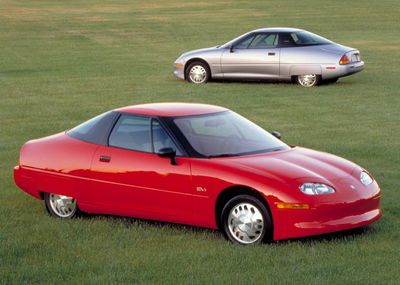
How has the entity of the EV been around for so long, and yet has lagged behind IC for over a century? Many believe that the lack of electric automotive progression has been down to the large oil companies buying and subsequently shelving the technological advancements made in the late 20th century that would have been an earlier rise of the electric car.
Large firms like BP and Shell wouldn’t want their revenues spoilt by people leaning away from internal combustion, and therefore are believed to have deliberately snuffed-out any big advancements to keep their pockets nice and deep. Although this conspiracy may have some backbone to it considering the Bush administration repealed the EV-friendly CARB regulation, I think the lack of sufficient battery technology has been simply a challenge that has taken this long to tackle. Even now, the batteries supplied with EVs don’t quite match our everyday needs, putting electric cars firmly in second place at this point in time.
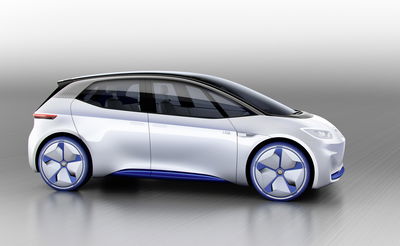
The rate at which EV technical progression is now accelerating will inevitably mean the glory days of internal combustion are soon to come to a close. It won’t be long until electric vehicles begin to fill the streets of your town or city as they become cheaper and more convenient with time.
All good things must come to an end, and that includes screaming V12s, thumping V8s and warbling boxers, with the electric motor rendering them obsolete. The era of the EV isn’t quite here yet though, so invest in old-school IC, stockpile fuel and ready yourself for the cold, electrified winter ahead.














Comments
This is shocking!!
There’s a 7th reason why EV cars are not as good as combustion cars
Thats probably should be reason no.1
They do, it’s the same as a toy car
EV’s will replace daily cars like a Fiesta but a Fiesta diesel doesn’t like anything anyways so I don’t see problems. I absolutely prefer combustion sounds, and think they’ll stay as enthousiast cars.
They can play like in BMW i8 fake sound :-|
Yeah… I’m just really scared. Our way of life is.. it’s dying. I want to do so many things with cars, but there’s a good chance that internal combustion will be banned in my lifetime. It’s just bad.
yeah I really don’t want to see that happening. I still hope that they don’t ban normal cars and we can just drive our beloved V8s, straight sixes, Turbo fives and so on. And also: If you are still allowed to drive them, you could probably buy whatever you want because everyone who doesn’t care about cars will want an ev because of high fuel prices, so IC prices will drop. As long as I’m allowed, I will drive a real car. Even if it gets even more expensive.
Yeah, because screw the environment right?
Yeah, because screw the environment right?
You forgot to mention life span - it kinda goes hand in hand with range but essentially the batteries in the car will stop holding a charge and need replacing. And that’s isn’t exactly a clean process…
This has pretty much been proven to be false. Degradation of batteries is far less of an issue than people first thought.
The volt has solved this by never charging 100% and never letting it drop below 10%, this gives the batteries a longer lifespan
Internal combustion cars are like agood wine: so much to savor, but it’s still poison.
And electric cars have REAL torque vectoring, not the brake operation stuff in gas cars. This leads to a compensation for weight when it comes to handling.
It helps, sure, but any existing electric car would get absolutely smoked by most supercars and probably a few cheaper cars on a track where handling is important.
Combining that weight with the extra solar panels…
Solar panels on electric cars is pointless.
No. 1 reason
Why? Because car enthusiasts love the noise from the engine itself, not from battery (indeed because battery doesn’t make any sound, except note7’s battery, it makes explosion sound)
Note 7 is an internal combustion smartphone
Well that’s not very appropriate reason.Electric car makers don’t care about carguys.A normal car customers,politics,litteraly people neither.We are to them destroyers of planet with stupid sense and not real hobby.
And are boring.
How so?
And charging them is around the same as 7 electric kettles running through the night
Pagination